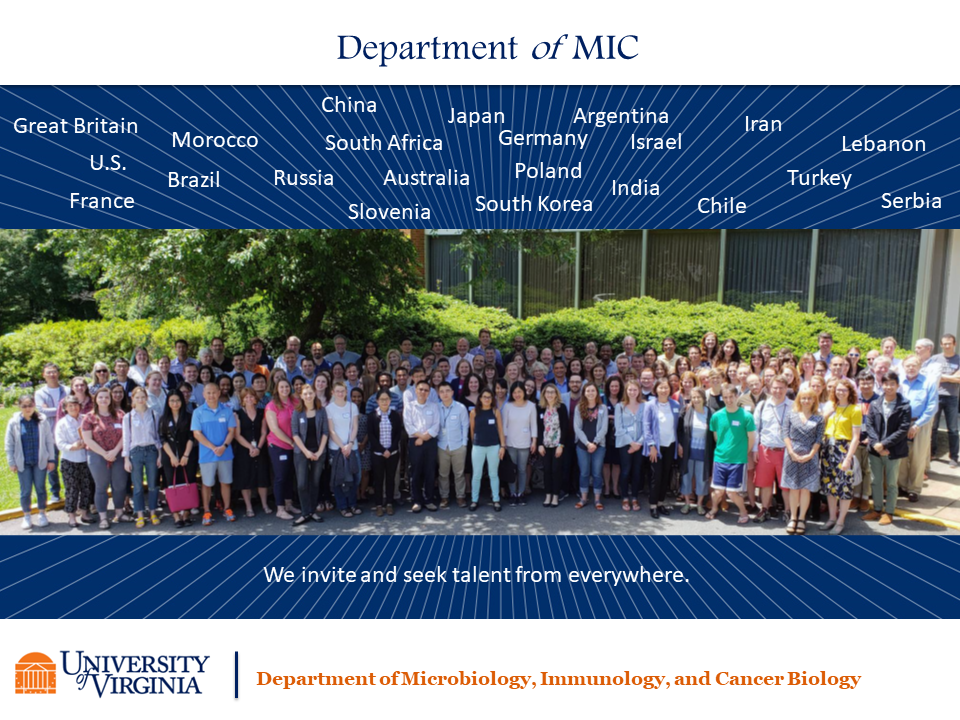About Us

Letter from the Chair
Welcome to the Department of Microbiology, Immunology, and Cancer Biology (MIC)Microbiology, Immunology, and Cancer Biology is the largest basic science Department with the UVa School of Medicine, comprising an outstanding group of faculty, students and post-doctoral fellows conducting cutting-edge research in many exciting areas of basic biology and human disease. Our research investigations take an integrated and cross-disciplinary approach to address questions in three key major fields: Microbiology, Immunology, and Cancer Biology.
Specifically, the faculty members of the Department of MIC focus on:
- Microbiology – as it relates to intrinsic features of the pathogen (i.e. what makes a pathogen a pathogen), host-pathogen interactions, and the immune response of the host toward the pathogens
- Immunology – development of the immune system, signaling and modulation of T and B cells during immune responses, immune response to viruses and other pathogens, cancer immunology, immune tolerance, autoimmunity, as well as cell death and cell clearance in the immune system
- Cancer Biology – basic cancer biology in the context of breast cancer, prostate cancer and pancreatic cancer, tumor microenvironments, epigenetics, as well as translational cancer biology and cancer immunology, immunotherapy and neuroblastomas
Our faculty members use a variety of in vitro and in vivo approaches, including all of the modern tools of molecular biology, biochemistry and cell biology as well as mouse models and model organisms. It is notable that the research conducted by our faculty often spans more than one of the above three areas i.e. intentionally cross-disciplinary, to probe and answer scientific questions in a much broader scope. I encourage you to visit the various links to learn more about the faculty within the Department, graduate education opportunities, news, seminars etc.

